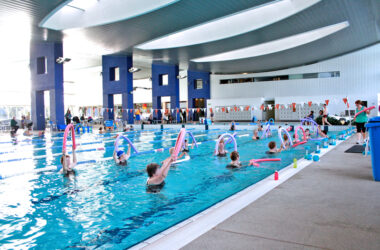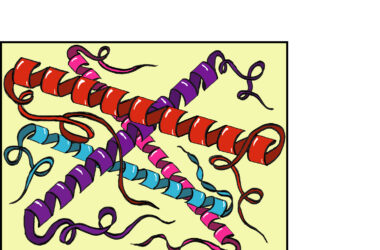 McGill Electric Snowmobile Team
McGill Electric Snowmobile TeamIn the age of electric cars, there is less focus on regulating emissions from other vehicles. From Sea-Doos to Ski-Doos, the small vehicle market is largely immune to the hybrid revolution. The McGill Electric Snowmobile team, a group of 12 undergraduate engineering students, is looking to change that by building a new snowmobile that runs entirely on electricity, every year.
The team participates in a competition each spring in New Hampshire. In the competition, the teams’ snowmobiles are judged on categories such as noise level, speed, fuel economy, and overall design.
“You get a snowmobile and you have to modify it in a way so that it performs better with less emissions, and less noise than a stock snowmobile,” Ramtin Parvizi, a U4 electrical engineering student and captain of the team, said, explaining the rules of the competition. “The quietest and most practical snowmobile wins.”
In previous years, the competition focused on modifying standard snowmobiles to be more environmentally friendly, without changing the internal combustion engine too drastically. The zero-emission, or electric, category was only added recently.
“McGill was actually the first university that appeared with a hybrid snowmobile, and it gave [the organizers] the idea that hybrid, or electric snowmobiles can be in the competition,” Parvizi explained.
It’s not all about the competition, though. Last year’s snowmobile took a trip all over Canada and Greenland.
“The snowmobile from last year was used in the North Pole for research,” Parvizi said. “[Researchers] don’t want the samples of their ice to be contaminated with gas [which] a gas snowmobile would produce.”
The snowmobile also made a cameo at the Olympic Games.
“For the Vancouver Olympics, they used the snowmobile to carry the torch,” Parvizi said.
Creating a celebrity snowmobile which runs on electricity is no trivial task, but this hasn’t discouraged the group of engineers, who view it as an opportunity to get hands-on experience with the material they learn in the classroom.
“There’s a lot of time involved,” Parvizi said. “The classes are where you learn about these things, but you don’t know how to use them … This is where you [say] ‘oh, that was the equation I studied, this is how it actually works.'”
It would seem as though McGill’s curriculum is preparing the students well, as the team finished second place last year. Despite the strong finish, though, Parvizi says the team isn’t satisfied.
“This year, we are aiming for first.”








